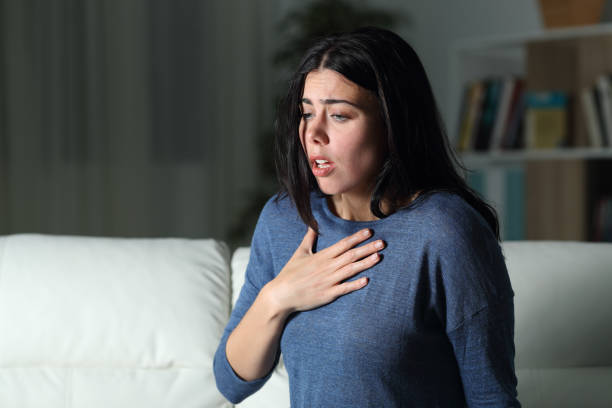How Cannabis Can Help Manage Anxiety, Depression & More
In the past few years, patients with various mental disorders have shown interest in using marijuana, especially cannabidiol (CBD) products. There’s evidence that cannabis compounds can help boost mental health.
Since more than half of the US states have legalized medical marijuana, you can easily access the herb with Medical Marijuana Card Riverside. Using the card, you can visit any state-licensed dispensary to buy candies, concentrates, flowers, brownies, and other cannabis products legally. However, to get maximum health benefits, you should choose the right strains.
Top Mental Disorders Cannabis Can Help
Anxiety
In the United States, anxiety is a common mental illness. Common symptoms of this condition include mood swings, sleep problems, trouble focusing, and fear. CBT is one of the most effective treatments for anxiety. It’s based on analyzing and changing a patient’s thinking patterns, thus promoting mental wellness.
Medical researchers have found that cannabis has powerful medicinal properties to help patients manage anxiety symptoms. The phytocannabinoids (especially THC and CBD) bind to the receptors in the endocannabinoid system (ECS), a complex system responsible for controlling different functions in the body.
Unlike anti-anxiety medications, such as benzodiazepines, cannabis use isn’t linked to any side-effects, such as drowsiness, memory problems, dizziness, etc. However, when using marijuana as an anxiety treatment, the dosage is the key. There’s scientific evidence that cannabis can help reduce anxiety & depression levels for short-term while long-term use may lead to some health risks.
Post-Traumatic Stress Disorder
Post-Traumatic Stress Disorder (PTSD) is linked to a traumatic event, such as an accident, death of a loved one, natural disaster, sexual violence, etc. The patients with this condition usually experience flashbacks and nightmares about their terrifying events. Some may develop additional health issues, such as anxiety and depression. The condition may last for months or years.
Traditional PTSD treatments include different types of psychotherapy and medications. However, marijuana’s chemical compounds can also help in managing PTSD symptoms. A study published in Drug and Alcohol Dependence was focused on determining the link between cannabis and PTSD. The researchers noted that patients with high PTSD scores were likely to consume cannabis for sleep problems and other reasons than patients who had low scores.
Additionally, marijuana can help elevate serotonin levels in the brain. And, medical researchers believe PTSD treatment is focused on increasing the serotonin levels.
Insomnia
Insomnia is trouble falling asleep at night. It’s rarely a condition, but a symptom of various other illnesses, such as anxiety, depression, and PTSD. Marijuana can help boost sleep by stimulating the body’s endocannabinoid system.
Research says that marijuana consumption can help reduce REM sleep. REM (Rapid Eye Movement) occurs during the dreaming phase and usually lasts for up to two hours. It’s associated with creating dreams and promoting learning. So, after using cannabis, you will spend less time dreaming and more time in a deep sleep.
Since every patient has a different condition, choosing the right cannabis strains is important. Some of the best strains that can help fight sleep problems are—Girl Scout Cookies, Tahoe OG Kush, Remedy, Granddaddy Purple, Harlequin, Northern Lights, and Afghan Kush.
Related - How THC and CBD Affect Sleep?
Attention-Deficit/Hyperactivity Disorder (ADHD)
ADHD is a chronic condition common among children. According to the CDC, 11 percent of children ages 4 to 17 in the United States have an attention disorder. Common symptoms are impulsiveness, poor time management skills, trouble planning things, multitasking, and difficulty focusing on work.
Although there’s a wide range of medications for ADHD available, they can cause certain side-effects. Marijuana can be used as a natural alternative to ADHD medications. The cannabinoids are packed with ultimate therapeutic properties, which can help improve focus, mood, etc.
Medical researchers have found that ADHD occurs due to the lack of dopamine, a neurotransmitter associated with controlling processes such as attention and memory. Marijuana use can accelerate the production of dopamine, thus helping patients with ADHD. According to a study published in the Natural Journal, THC can help elevate dopamine levels. However, this is true for the short-term. And, long-term use may worsen the symptoms.
Anorexia Nervosa
Anorexia Nervosa is an eating disorder that can cause excessive weight loss. Patients with this condition have a fear of weight gain, so they do excessive efforts to lose weight. They often avoid eating foods with others.
Marijuana use can cause munchies, thus making consumers eat more and gain weight. Research says that THC can help make the food smell & taste good, thus boosting appetite and treating Anorexia Nervosa.
According to a study published in the Journal of Biological Chemistry, THC helps in releasing ghrelin by binding to the receptors in the hypothalamus. Ghrelin is a hormone linked to appetite.
Some of the best cannabis strains for Anorexia Nervosa are—Ash, Tres Dawg, Gorilla Biscuit, Cactus Cooler, BC Big Bud, Alien Addiction, and Mochi.
Autism Spectrum Disorder
It’s a condition associated with brain development, which can cause problems in communication and social interaction.
Research says that autism occurs as a result of the blocking of the endocannabinoid production and chemical interaction with the brain. Cannabinoids in marijuana can help in correcting endocannabinoid deficiencies, thus improving the quality of life.
According to a recent study conducted by the Soroka University Medical Center, cannabis can help children with ASD. It was a two-year study with 35,000 participants. 41.5 percent of caregivers of 188 children found moderate to significant improvements with cannabis oil containing low-THC and high-CBD. Moreover, 20 percent of the participants successfully eliminated the use of medications with cannabis consumption.
Additionally, cannabis can also help in treating epilepsy, a condition linked to Autism Spectrum Disorder. In fact, epilepsy is listed among the MMJ qualifying conditions of many states where medical marijuana is legal.
Some of the best strains for fighting autism are—Northern Lights, Sour Diesel, Green Crack, Blue Dream, Black Bubba, and Charlotte’s Web.
How to Get a Medical Marijuana Card?
An MMJ card Riverside is necessary if you want to use cannabis as a treatment for anxiety, depression, ADHD, PTSD, anorexia, or other medical conditions. To get a card, you need to visit a medical marijuana doctor who will check if you are eligible.
If you want to save time, you can apply for a medical marijuana card online. The process is very simple and comprises three steps-
- Sign up an account
- See a doctor online using HIPAA-compliant software
- Receive your medical marijuana recommendations in PDF format via email
Your hard copy of MMJ recs will be sent via mail in 1-3 business days.
Final Thoughts
Medical marijuana is packed with amazing therapeutic properties, which can help in managing various mental health conditions. Research says that cannabis is effective for anxiety, depression, stress, insomnia, eating disorders, and autism. It has cannabinoids such as THC and CBD, which stimulates the endocannabinoid system by binding to the cannabinoid receptors.
When using marijuana as a treatment for your condition, make sure you buy the right strains, and seek professional advice for dosage. This is because cannabis doesn’t provide the same effects to all consumers and everyone has different symptoms. It’s good to talk to a board-certified doctor to get help regarding what’s right for you.
Get MMJ card Riverside to use cannabis for medical purposes legally.
Source Link : How Cannabis Can Help Manage Anxiety, Depression & More






Comments
Post a Comment